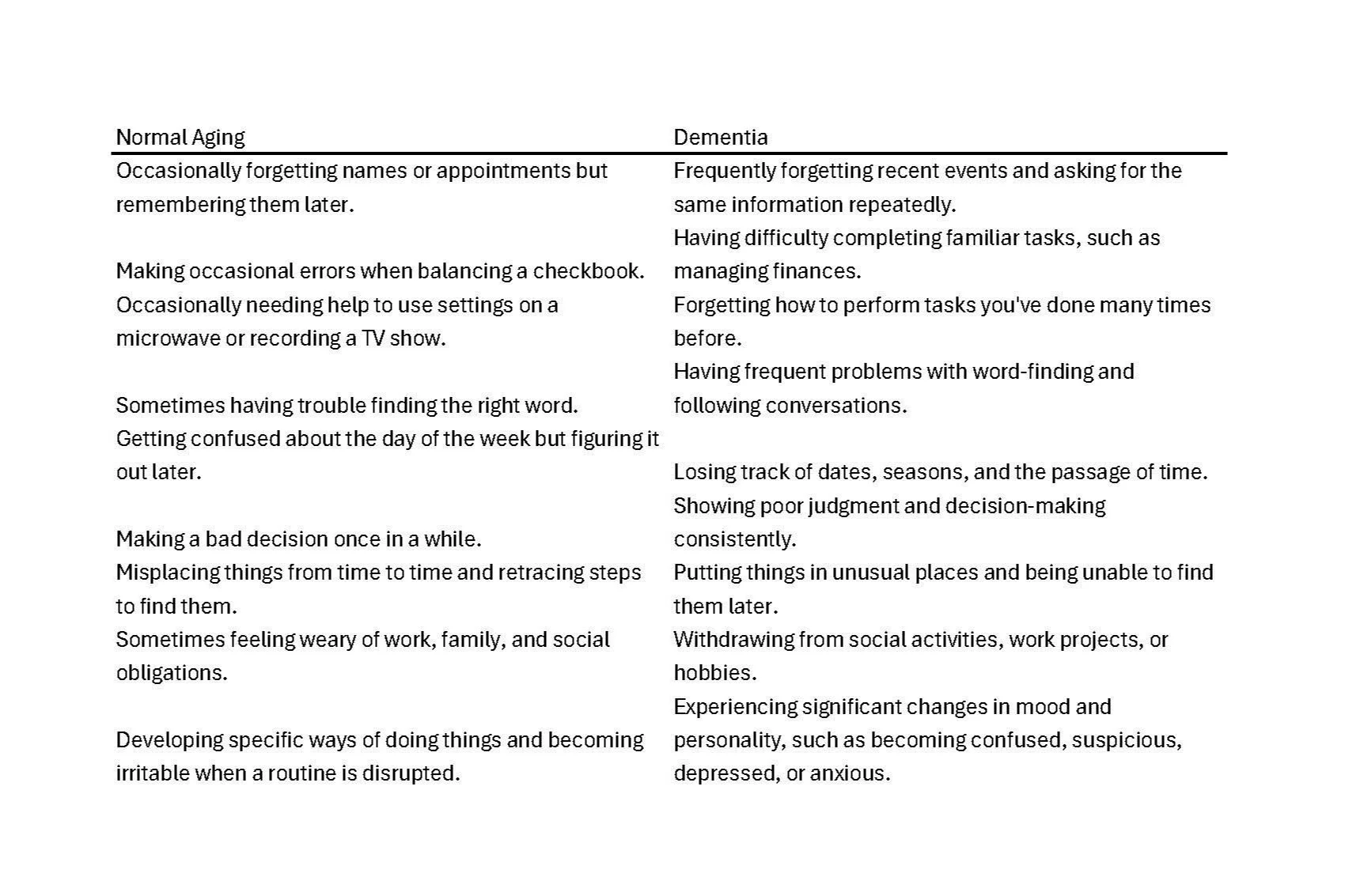Aging is a natural process that brings about changes in our bodies and minds. However, there is a common misconception that everyone will inevitably develop dementia as they grow older. In this blog post, we will clarify what dementia is, explain that it is not a normal part of aging, and provide tips for recognizing when someone might be experiencing more than just age-related changes.
Understanding Normal Aging
As we age, certain changes in cognitive function are to be expected due to a variety of neurological and physical factors. Normal aging might include:
Slower processing speed: This occurs because the brain's communication pathways can become less efficient over time. Myelin, the protective sheath around nerve fibers, may degrade, slowing down the speed of signal transmission.
Reduced multitasking ability: The prefrontal cortex, which is responsible for complex cognitive behavior and decision making, can show reduced volume and connectivity, making it harder to juggle multiple tasks at once.
Mild forgetfulness: The hippocampus, critical for forming new memories, often shrinks with age. This can result in occasional lapses in memory, such as misplacing items or forgetting appointments but being able to recall them later.
These changes are typically mild and do not significantly impact daily life. They are part of the normal aging process and should not be confused with more serious cognitive impairments.
What is Dementia?
Dementia is an umbrella term for a range of conditions characterized by a significant decline in cognitive function that interferes with daily life. It is not a single disease but rather a syndrome caused by various diseases or injuries that affect the brain. Importantly, to be diagnosed with dementia, there must be a noticeable decline in at least two cognitive functions (such as memory and reasoning) that are severe enough to interfere with daily activities and independent living.
The most common types of dementia include:
Alzheimer's disease: The most common form, accounting for 60-80% of cases.
Vascular dementia: Often resulting from strokes or other issues affecting blood flow to the brain.
Limbic-Predominant Age-Related TDP-43 Encephalopathy (LATE): A recently identified form of dementia affecting older adults, often co-occurring with Alzheimer's disease.
Lewy body dementia: Associated with abnormal protein deposits called Lewy bodies in the brain.
Dementia is Not a Normal Part of Aging
It is crucial to understand that while dementia is more common in older adults, it is not a normal or inevitable part of aging. Most older adults do not develop dementia. Risk factors for dementia include genetics, lifestyle, and other health conditions, but age alone is not a determining factor. Many older adults experience some cognitive changes without these affecting their ability to function independently, which distinguishes normal aging from dementia.
Recognizing Signs of Dementia
Distinguishing between normal aging and dementia can be challenging. Here are some signs that might indicate a need for further evaluation:
Memory Loss: Forgetting recent events or information and not being able to recall them later, affecting daily life.
Difficulty Performing Familiar Tasks: Struggling with tasks that used to be easy, such as managing finances or following a recipe.
Language Problems: Problems with finding the right words or following conversations.
Disorientation: Getting lost in familiar places or not knowing the date or time.
Poor Judgment: Making poor decisions, such as giving away large sums of money to strangers.
Misplacing Things: Putting items in unusual places and being unable to retrace steps to find them.
Changes in Mood and Personality: Experiencing rapid mood swings, confusion, or suspicion without reason.
Withdrawal: Losing interest in social activities, hobbies, or other engagements.
These signs go beyond the normal cognitive changes associated with aging and significantly impair daily functioning.
Normal Aging vs. Dementia: Examples
Here are some examples that can help distinguish between normal aging and dementia:
What To Do If You Notice Signs of Dementia
If you or a loved one is exhibiting signs of dementia, it is important to seek a professional evaluation. Early diagnosis and intervention can help manage symptoms and improve quality of life. Here are steps to take:
Consult a Doctor: Start with a primary care physician who can perform initial screenings and refer you to a specialist if necessary.
Schedule a Neuropsychological Assessment with Insight: At Insight, our comprehensive neuropsychological assessments can evaluate cognitive function across different domains and help determine if the changes are due to normal aging or something more serious. These assessments involve detailed testing and provide a thorough understanding of cognitive health.
Follow Professional Recommendations: Based on the assessment results, follow the recommendations provided by healthcare professionals. This may include lifestyle changes, medication, or other interventions to manage symptoms and support cognitive health.
Engage in Brain-Healthy Activities: Activities such as regular physical exercise, mental stimulation, and social engagement can help maintain cognitive function and overall well-being.
Monitor and Manage Health Conditions: Conditions like hypertension, diabetes, and heart disease can impact cognitive health. Regularly monitor and manage these conditions with the help of healthcare providers.
Conclusion
While aging brings about changes in cognitive abilities, it is important to recognize that dementia is not an inevitable part of getting older. Understanding the differences between normal aging and dementia can help in taking the right steps to ensure proper care and support for those who may need it. If you have concerns about cognitive changes in yourself or a loved one, do not hesitate to seek professional advice and intervention. Schedule a neuropsychological assessment with Insight to get a clear picture of cognitive health and the best path forward




